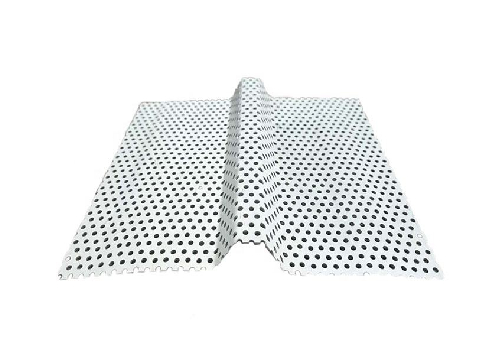

Nov . 06, 2024 07:37 Back to list
The Importance of Scrap Metal Plants in Modern Recycling
In the contemporary world, where sustainability and resource conservation are at the forefront of industrial practices, scrap metal plants play a pivotal role in recycling and repurposing metal materials. These facilities are essential not only for their environmental benefits but also for their contribution to the economy and the overall efficiency of material utilization. As we delve into the workings and significance of scrap metal plants, it becomes clear why they are indispensable to modern industry.
Understanding Scrap Metal Plants
Scrap metal plants are specialized facilities that collect, process, and recycle various forms of metal waste, including steel, aluminum, copper, and more. The process typically begins with the sourcing of scrap metal, which can arise from numerous avenues discarded appliances, outdated vehicles, construction debris, and manufacturing leftovers. These materials, once considered waste, are brought to the plant where they undergo a series of sorting, cleaning, and processing stages.
The first step in this journey involves the identification of different metal types, which is crucial because various metals have different properties and recycling processes. Workers or advanced machinery meticulously separate ferrous metals (those containing iron) from non-ferrous metals. This segregation is vital to ensuring the quality of the recycled materials. Once sorted, the metals are often shredded to reduce their size, making them easier to handle and transport.
Environmental Benefits
The environmental advantages of scrap metal plants cannot be overstated. By recycling metals, these facilities significantly reduce the need for raw material extraction, which is an energy-intensive and environmentally damaging process. For example, producing aluminum from bauxite ore consumes approximately 95% more energy than recycling aluminum. Thus, by investing in scrap metal recycling, we conserve energy and minimize greenhouse gas emissions associated with metal production.
Moreover, scrap metal recycling reduces waste in landfills, addressing one of the significant challenges faced by urban areas
. According to estimates, recycling steel can save a staggering 1,400 pounds of iron ore, 800 pounds of coal, and 700 pounds of limestone for every ton of steel produced from recycled material. Consequently, scrap metal plants serve as critical facilities in achieving waste reduction goals.
Economic Contributions
Beyond their environmental impact, scrap metal plants contribute significantly to local and global economies. They create jobs ranging from sorting and processing to transportation and sales. The scrap metal recycling industry provides employment opportunities for thousands of individuals, fostering economic growth in the communities in which they operate.
Furthermore, these plants support manufacturing industries by providing a cost-effective source of materials. Recycled metals are often cheaper than newly mined ores, which benefits manufacturers and ultimately consumers. The availability of affordable materials encourages innovation and expansion within various sectors, from automotive to construction.
Challenges and Future Outlook
Despite their many benefits, scrap metal plants face challenges, including fluctuating metal prices, regulatory hurdles, and the need for technological advancements to improve processing efficiency. As the demand for recycled metals continues to grow, investing in modernizing these facilities is essential. Advances in automation and sorting technology can enhance productivity and ensure higher purity in recycled products.
Looking ahead, the role of scrap metal plants will likely expand as society moves toward a more circular economy, where waste is minimized and resources are reused wherever possible. As industries and consumers become more aware of their environmental footprint, the importance of these plants in the recycling ecosystem will continue to rise.
In summary, scrap metal plants are a cornerstone of responsible resource management in our modern world. Their multifaceted contributions to environmental sustainability, economic growth, and material efficiency underscore their vital role in shaping a greener future. As we continue to develop innovative recycling solutions, scrap metal plants will undoubtedly remain at the heart of our efforts to build a sustainable society.
Latest news
Troubleshooting Common Eddy Separator Problems
NewsJul.04,2025
The Role of Metal Recycling Plants in Circular Economy
NewsJul.04,2025
The Impact of Recycling Line Pickers on Waste Management Costs
NewsJul.04,2025
Safety Features Every Metal Shredder Should Have
NewsJul.04,2025
How Industrial Shredders Improve Waste Management Systems
NewsJul.04,2025
How Cable Granulators Contribute to Sustainable Recycling
NewsJul.04,2025